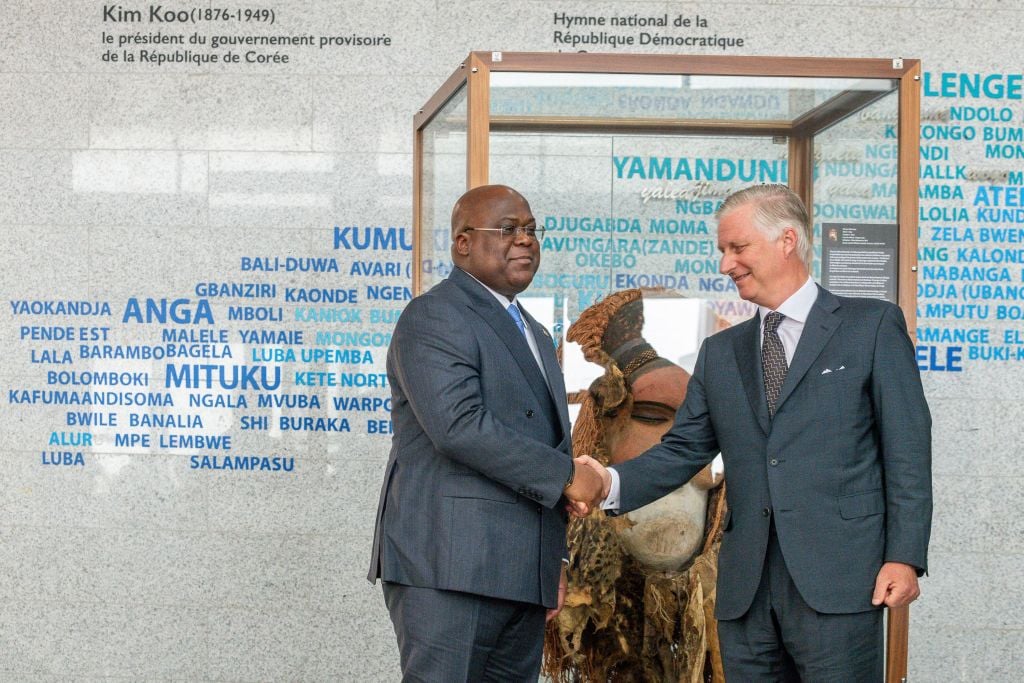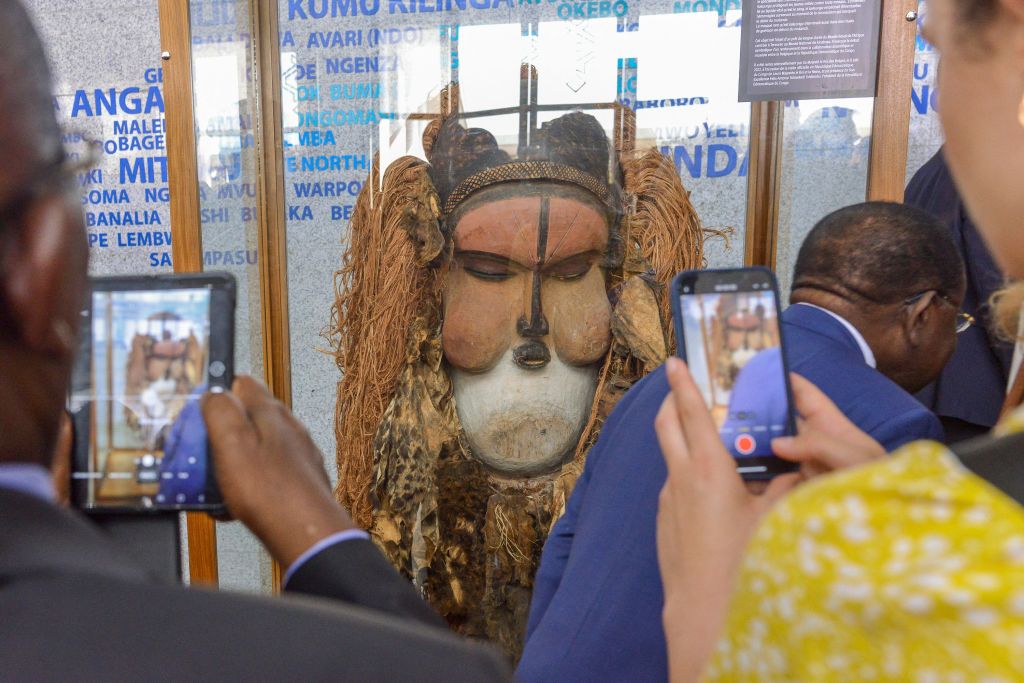Politics
Stopping Short of Restitution, King Philippe of Belgium Gives the Democratic Republic of Congo a Stolen Mask on ‘Indefinite Loan’
The Belgian King said he “regrets” the colonial-era crimes of his country.

The Belgian King said he “regrets” the colonial-era crimes of his country.

Taylor Dafoe

This week, King Philippe of Belgium returned to the Democratic Republic of Congo (DRC) a ceremonial mask stolen during the European country’s violent rule of the former colony.
The repatriation took place during an official ceremony on the grounds of the DRC’s parliament in the capital city of Kinshasa, where Philippe met with DRC president Felix Tshisekedi. Philippe called the gesture the “symbolic beginning” of a renewed relationship between the countries.
“I wanted, during our visit at the National Museum and in your presence, to return to you this exceptional work in order to allow Congolese to discover and admire it,” King Philippe told Tshisekedi at the event.
The monarch took the occasion to reflect on his country’s 75-year-control of Congo, a brutal period of exploitation inaugurated by King Leopold II, Philippe’s grandfather, when he claimed personal and outright ownership of the African region that now constitutes the DRC in 1885.
Belgian rule in the Congo was marked by exploitative rubber farming, butchery of natives (punishments often involved cutting off exploited workers’ limbs), and the genocide of as many as 10 million Congolese people—half the region’s population—between 1880 and 1920.
“The colonial regime itself was based on exploitation and domination,” King Philippe said this week. “[It] was one of unequal relations, unjustifiable in itself, marked by paternalism, discrimination, and racism. It led to violent acts and humiliations.”
“I wish to reaffirm my deepest regrets for those wounds of the past,” he added.

People take pictures of a ceremonial mask handed to President of the Democratic Republic of the Congo Felix Tshisekedi by Belgium’s King Philippe during a ceremony at the National Museum of the Democratic Republic of the Congo in Kinshasa on June 8, 2022. Photo: Arsene Mpiana / AFP via Getty Images.
Standing over five feet tall, the Kakungu mask was used in ceremonies conducted by the Suku people in the southwest part of the Congo. The object was purchased by Belgian scientist Albert Maesen in 1954 for 215 francs, and has since been displayed numerous times at the Royal Museum for Central Africa in Tervuren, outside Brussels.
According to an inventory provided to Congolese authorities by the Belgian government earlier this year, an estimated 84,000 artifacts, including the Kakungu mask, were stolen during the colonial era. Those objects constitute 70 percent of the Royal Museum for Central Africa’s collection.
Yet the mask has not been formally restituted; it remains illegal in Belgium to remove works from federal collections, according to the Belgian media outlet VRT News. Instead, King Philippe explained, the piece is going to Congo’s national museum on an “indefinite loan.”
A law that would lay the groundwork for new restitution policies on a case-by-case basis is currently being reviewed by Belgium’s legislature.
If passed, it would require foreign authorities to apply for individual artifacts to be returned, the New York Times reported. Restitution requests would then go to a joint commission of experts from both Belgium and the outside nation for approval.